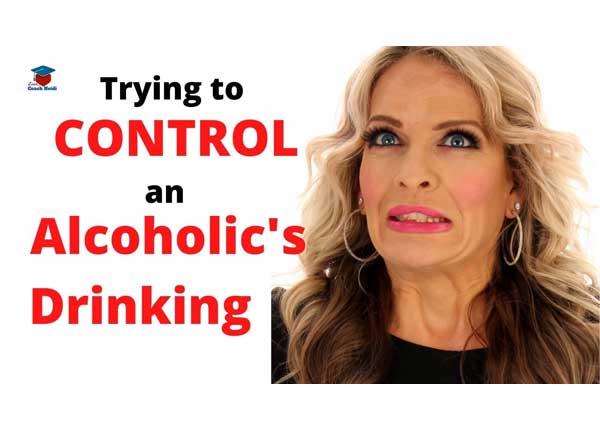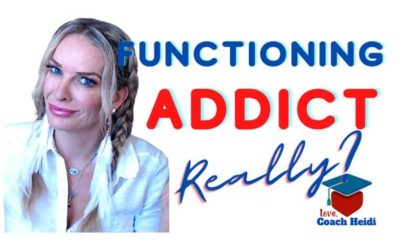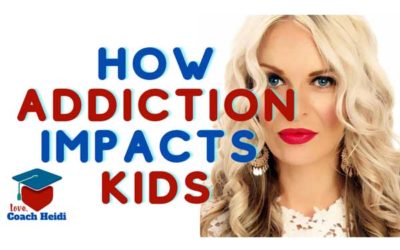You’re reading this because you are in a relationship of some kind with an addict or an alcoholic. And you’re wondering if all the work you’re doing, all the time you’re putting in to control this addiction, is actually helping or hurting.
I’m going to answer that question.
If you’re new here, I write about everything dysfunctional and toxic relationships. My goal is to help you overcome codependence and break toxic cycles of behavior for good.
First of all, what is codependency?
Codependence is just a way to function in dysfunction. And controlling is a form of codependence as a way to function in dysfunction.
Why are you controlling their behavior to? Let’s be real. There’s a lot on the line here. When you love somebody that’s addicted, it’s excruciating. I don’t have to tell you the feelings that go along with that. The anxiety is outrageous. It’ll keep you up at night, scratching your head, wondering when or how it’s going to end. When are you going to get the call? When are they not going to make it home? Or God forbid, if they’re out, are they coming home and what’s going to happen if they do?
It’s really maddening. It can make you feel like you’re in a battle without weapons. You just don’t know what to do. One minute you can do something that seems helpful and the next minute you can do it and it seems like the absolute wrong thing to do and I wish it were more black and white.
Some things are. Some things I can tell you in the decade of experience that I’ve had when I worked as a teacher and a coach inside one of the world’s leading drug and alcohol treatment centers when I worked with thousands of clients there and hundreds of families.
And I have to tell you, there are definitely some things that are cut and dry. But in the middle is this gray area where I want to help you try to figure out what it is that you believe in doing. Not what you think is going to keep somebody sober. But what it is that you believe in. So that you can sleep at night, knowing you’re doing everything you can because you want to get your loved one back.
It’s like a Jekyll and Hyde, isn’t it? Especially if you’ve experienced them sober. You’re thinking, “I know the person I love is in there”. You just want to shake them awake. You know they have so much potential to be the person that you know they can be.
But they’re hijacked by the addicted personality, which looks just like a narcissist.
Addiction and narcissism mirror each other. They look the same and so the effect on you is the same. You’re suffering the same as somebody in a narcissistically abusive relationship.
But we keep forgiving them because we say, “they’re addicted. I guess they can’t help themselves.”
That may or may not be true, but the bottom line is the same, you’re in pain and so you try and control them.
You need to get a handle on this because it’s not just killing you. It’s killing everybody around you too. Addiction affects the whole entire system, not just the person who’s using.
It’s traumatic for everybody that’s experiencing it.
I’m going to discuss some of the things I’ve personally done in order to control somebody else’s addiction, as well as some of the things that my students and clients have told me over the years through our programs and courses.
If at any time you’re interested in deepening your dive with us in one of our courses, our programs, you can head over to check out our offerings
When I was a little girl, my dad used to have hiding spots for his alcohol. Sometimes they would be obvious places, but sometimes they wouldn’t be so obvious. One of the places that he liked to hide his alcohol was behind the toilet seat, thinking nobody’s going to go behind there, in the toilet tank. Well until the toilet breaks and you’re brave enough as a little girl to get back there and ask, “How does this thing work?”
Well, one day, I took the lid off, and lo and behold, I saw a bottle of vodka.
And I remember thinking, “Yuck! What the Hell?” First of all, I was surprised, because I thought he just was drinking beer.
So one of the rules of thumb I use is alcoholism and addiction usage is like cockroaches. For every one you see there are hundreds more.
So if we’re finding one bottle of vodka, there are many, many, more.
But, sometimes we don’t want to believe it’s as bad as it is. I’m telling you, it is that bad and worse.
Anyway, I remember thinking to myself, “If my dad knew that I know that he’s hiding this, he would feel so ashamed.”
I thought I could shame him or embarrass him into quitting.
I got the bright idea to dump the liquor bottle out down the drain and put the empty bottle back. I’d checked back and sure enough, there was another full bottle. I thought, “Oh, well, maybe he just thought he drank it all and didn’t know it was me who dumped it. Let me try something else.”
So this time, dumped the bottle out, and then I threw the bottle away thinking, “Now surely he’ll know it was me that took that bottle out of there. He’ll be so embarrassed. And he’ll love me so much that he will feel ashamed of himself and he’ll quit.”
And you know what? As soon as I could bat an eyelash, there was another bottle of vodka. And as a kid, you’re not thinking, “Oh, I see, he must be an alcoholic and he can’t really control that. And there’s this compulsion to drink in spite of negative consequences.” No, I thought, “Well gosh, I guess my dad doesn’t love me enough because he must have known it was me and chose the vodka!”
I think even adults as we think that too. We believe if they just loved us enough they would stop. But as you will come to understand, if you work with us in one of our courses, addiction is much more complex than that.
How about you? Have you dumped liquor bottles down the drain? Have you marked the liquor bottle with a marker? Have you filled liquor bottles up with water?
I thought my dad just needed to know how much he was drinking. In fact, when he would go to bed, I would take his beer cans out of the trash. I used to line the beer cans up at the bottom of the steps, like a beer tower.
I made a house of beer cans thinking, if he would just come me downstairs and be confronted with this problem in the morning when he’s sober again, I could shame him into quitting.
Using shame is a form of control. Shaming somebody looks like pointing out how much they’re drinking and embarrassing them with stories of their drinking and trying to remind them of all the harm they’ve caused when they’re drunk or reliving the party or the corporate event and telling them how ashamed you are.
Shaming somebody into sobriety has never worked because Addiction has no shame.
That’s why somebody can keep doing the things they’re doing and hurting you the way they’re hurting you and destroying their lives and the lives of other people because addiction feels no shame.
The addiction doesn’t care. And when somebody is addicted, the addicted personality takes over the addicted person.
They lack empathy. They lack insight into their own behavior.
Ultimatums are another way we try to control somebody’s behavior. And an ultimatum is very different than a boundary. If you’re interested in how to set a boundary, go over to lovecoachheidi.com and take my free Masterclass How to Set a Boundary. It’ll give you the steps.
Unlike an ultimatum, a boundary has a consequence attached to it. It has an action attached to it. An ultimatum doesn’t. It’s like, “If you do that one more time, we’re leaving Disney.” and knowing damn well, you’re not leaving Disney, right? You’ve been waiting for a vacation the whole year.
An ultimatum is when you keep threatening to pull the trigger on something as a way to control the behavior, but you never follow through.
An ultimatum is trying to change or manipulate somebody’s behavior by threatening that you’re going to do something that you’re never going to do. And a boundary is what others can expect from you to protect yourself when the behavior doesn’t change.
That’s two very different things.
Another thing that we can do to try and control the addict is to lecture them.
You leave books out. I’ve had clients and students that have left Bibles out, with verses highlighted or sober books. You can put these books out and hope that they’ll pick them up. But you’ll ultimately find at the end of the day, the motivation is just not there because again, they’re active in their addiction.
The logical thinking part of the brain isn’t there. Nor is the motivation outside of the substance providing the dopamine.
When you try to lecture an addict, sitting them down and talking to them about their behavior (especially when they’re drunk) it’s like talking to a toddler in the middle of a temper tantrum.
You’re not having any access to any part of them that is actually going to put some dots together in the morning. But we get this false sense that we’ve had this deep conversation when they’re under the influence and just, no. No, you haven’t. So lecturing is futile. It’s absolutely pointless.
Another way we try and control the addiction is through doling out drugs or alcohol. We put pills in a safe and give them every four hours or six hours, or just give them an Ativan when they’re really freaked out.
Or we keep beer in the house and not hard liquor. We try to find ways to minimize the amount that they’re using. And some of us have even gone as far as actually using substances with our loved ones to make sure nothing bad happens. Many of my students and clients have told me they suggest using one drug over another to minimize impact.
The truth is everything that you’ve been doing calls for some compassion on your part for yourself. Because everything you’ve been doing, you’ve been doing out of a deep desire for everybody to be okay, including yourself.
To make everything and everyone ok, altruistic controllers try and manipulate others for the greater good.
We think we have more power than we actually have. And it’s really hard to get to the place where you realize you’ve done all of this work trying to control the outcome and the outcome is still the outcome. You’re not really impacting it. And that can be really hard to swallow.
The truth is, you don’t have control. Even though you think that you have a lock on it. You really don’t. You really don’t know how much one is using and how bad the addiction truly is and that truth is dangerous if you don’t believe it.
And I say that to you out of love so that you can get the help you need for yourself and everyone else.
You might have kids in your house and they’re having feelings about the addict or alcoholic, especially if it’s a parent or a sibling, but you’re trying to control how they feel about it or how they see it.
You are trying to control by telling others how to think, feel, or behave.
You could be telling them, “well, he’s a drunk, he’s an alcoholic. He’s no good. So, ignore him.”
Or you could be saying, “Moms fine; nothing’s going on.” gaslighting your own kids.
You’re telling your kids they shouldn’t feel the way they feel or they didn’t see what they see. You’re telling everybody how to feel, think, act, and behave. And that’s a form of controlling codependent that is extremely destructive for everybody in the family.
Everyone needs to have permission to express their own feelings. It affects everybody in a different way. We all need a safe outlet to be able to express how this affects us.
That’s exactly why we have our family program and our support group that meets every Wednesday night at 7:00 p.m.
I’ve dedicated my life to understanding codependence and dealing with addiction in the family. And I have extensive education. And through this experience, I’ve come up with eight different ways that we are codependent in these relationships. And a controlling codependent is just one.
You can download the free book, Attachment Personality Patterns, Identifying your Codependency Programming, and start to see other members of the family.
If you’re dealing with addiction in your family, this could be a long ride. You could be dealing with this for the rest of your life. Or you may decide to leave the relationship or go no contact.
It’s important that you get the support you need on the journey, especially if you have related to this article.
In the meantime, I wish you peace.
Love,
Coach Heidi






0 Comments